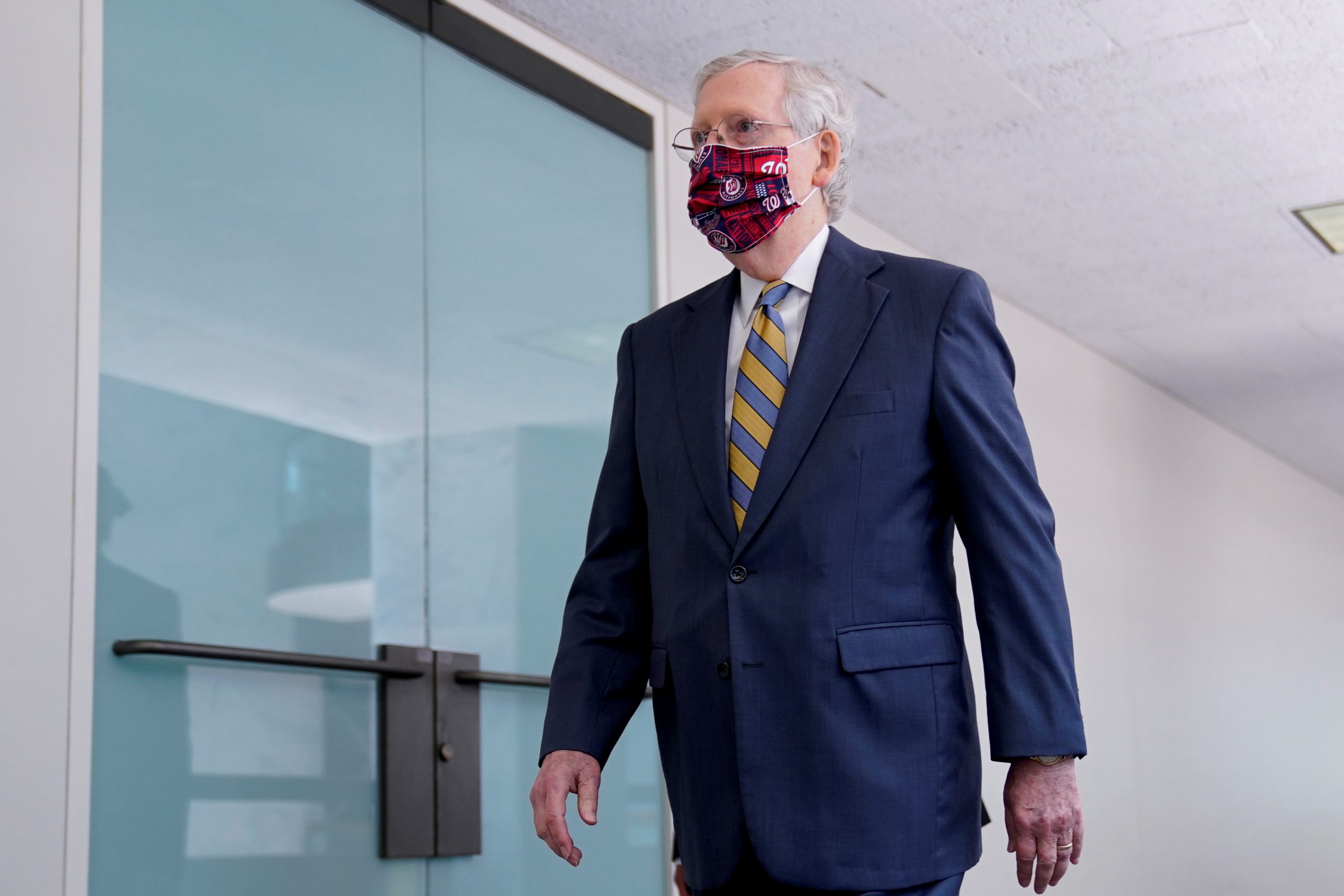Senate Majority Leader Mitch McConnell said on Thursday the U.S. economy needs an “additional boost” to cope with the fallout of the coronavirus pandemic, as Republicans and Democrats remained far apart about what to include in another wave of relief.
Republican President Donald Trump, who has threatened to act unilaterally if Congress does not agree on a further aid package, said he was working on an executive order targeting eviction protections and unemployment benefits.
The order would also address student loan repayment options and payroll tax cuts – a proposal he has raised repeatedly that met with little enthusiasm from Democrats or his fellow Republicans.
Congress’ top two Democrats and White House negotiators have been talking for nearly two weeks on next steps to address a crisis that has killed more than 157,000 Americans and thrown tens of millions out of work.
House of Representatives Speaker Nancy Pelosi said she would not back down on a demand to reinstate the $600 weekly enhanced unemployment payments that have been a lifeline for people who lost their jobs in the pandemic but recently expired. Republicans want to cut the payment, calling it a disincentive to work.
“When they come to the table and are like, ‘$600 – how could it be?’ they’re just demonstrating their condescension to America’s working families,” Pelosi told a news conference, after earlier suggesting Republicans did not give a “damn” about Americans who are hurting.
She rejected Republican proposals to agree on a temporary solution while negotiations continue, and said she hoped Trump would take executive action to extend a moratorium on evictions that expired late last month.
Pelosi and Senate Democratic Leader Chuck Schumer were due to join Treasury Secretary Steven Mnuchin and White House Chief of Staff Mark Meadows for more talks at the U.S. Capitol at 5 p.m. EDT (2100 GMT).
As negotiations neared the end of their second week, McConnell said he agreed with Federal Reserve Chairman Jerome Powell and Mnuchin that agreement is needed on another aid package, even though some of his fellow Republicans do not think so.
“The economy does need an additional boost,” McConnell told CNBC. Nonpartisan analysts say McConnell’s Republicans face a risk of losing their slim Senate majority in November’s elections.
McConnell, who met with Trump on Thursday but kept mum about their talks, said that while the Senate would be in session next week, he would give at least 24 hours notice of any votes. Some senators said they were leaving town on Thursday but would come back if there’s a deal to be voted on.
“We might not get a deal,” Republican Senator Richard Shelby told reporters. “There’s a lot of pessimism here.”
MEADOWS IN THE MIDDLE
As negotiations dragged on, some Democrats suggested that Meadows’ background as a hard-line conservative in Congress might impede progress.
“Mark Meadows is in this (negotiating) room for the expressed purpose of representing the division within the Republican caucus,” said Democratic Senator Chris Coons.
Meadows acknowledged he can be stubborn, but said Pelosi is too. “This is a negotiating strategy that the speaker often deploys: wear you down until finally you say, ‘I’ve had enough’ and you give in to her demands,” he told reporters on Wednesday evening.
“Anybody who’s covered Congress long enough knows that I typically will not concede as readily as some might think,” Meadows said.
Congress passed more than $3 trillion in relief legislation early in the pandemic. Pelosi and Schumer have pushed for a comprehensive package of assistance for the unemployed, the poor, hospitals, schools, and state and local governments.
Mnuchin has warned that the Trump administration would not accept “anything close” to the $3.4 trillion in new aid sought by Democrats. Senate Republicans have proposed a $1 trillion package that many of their own members have rejected.
(Reporting by Patricia Zengerle and David Morgan; writing by Susan Cornwell; Editing by Scott Malone, Leslie Adler and Jonathan Oatis)

























 Continue with Google
Continue with Google